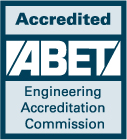The mission of the Department is to provide the highest quality programs to educate students at all levels in the principles and applications of Chemical and Biomolecular Engineering, within the environment of Tulane University. As part of this mission, students perform innovative and high quality research that advances engineering solutions as applied to health, energy, and the environment.
Vision Statement
We strive to be internationally recognized as a leading chemical and biological engineering department that exemplifies the dual commitment of outstanding research and education, producing high quality graduates who are creating knowledge and developing innovations
Distinctive Features of Our Program
- Small class size (high faculty-to-student ratio) with individualized attention to students at all levels.
- Discovery-based research at the molecular level with strengths in materials, biomolecular and interface sciences, bioengineering, and molecular modeling and simulation
- Opportunities for undergraduates to carry out research
- Opportunities to interact with the major chemical industries along the Gulf Coast
- Interdisciplinary research with Tulane Medical School, Tulane School of Public Health and Tropical Medicine, the Departments of Chemistry, Cell and Molecular Biology, Physics and Engineering Physics, and the Neurosciences Program
- Entrepreneurial research opportunities related to the unique environment of the coastal and deltaic region
- A rich and unique cultural environment in the New Orleans area and a campus culture that embraces civic engagement
Program Educational Objectives
The objectives of Tulane’s chemical engineering undergraduate program are to provide our students with the engineering science education and problem-solving skills:
1. To be rapidly placed in the next step of their career paths following graduation (e.g., industry, graduate school, or professional school).
2. To continuously grow with each career endeavor.
3. To be fulfilled professionals in their careers.
Student Outcomes
- An ability to identify, formulate, and solve complex engineering problems by applying principles of engineering, science, and mathematics
- An ability to apply engineering design to produce solutions that meet specified needs with consideration of public health, safety, and welfare, as well as global, cultural, social, environmental, and economic factors
- An ability to communicate effectively with a range of audiences
- An ability to recognize ethical and professional responsibilities in engineering situations and make informed judgments, which must consider the impact of engineering solutions in global, economic, environmental, and societal contexts
- An ability to function effectively on a team whose members together provide leadership, create a collaborative and inclusive environment, establish goals, plan tasks, and meet objectives
- An ability to develop and conduct appropriate experimentation, analyze and interpret data, and use engineering judgment to draw conclusions
- An ability to acquire and apply new knowledge as needed, using appropriate learning strategies.
Accreditation
Tulane's Chemical Engineering program is accredited by the Engineering Accreditation Commission of ABET, under the commission’s General Criteria and Program Criteria for Chemical, Biochemical, Biomolecular, and Similarly Named Engineering Programs.

